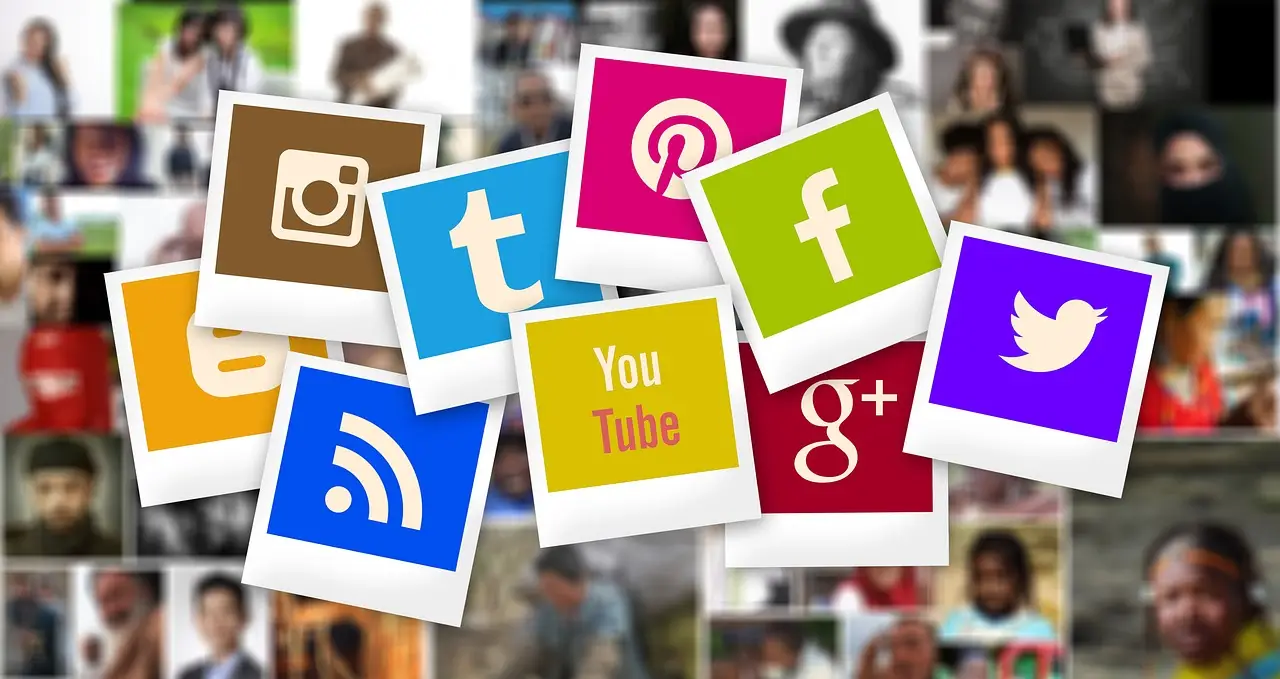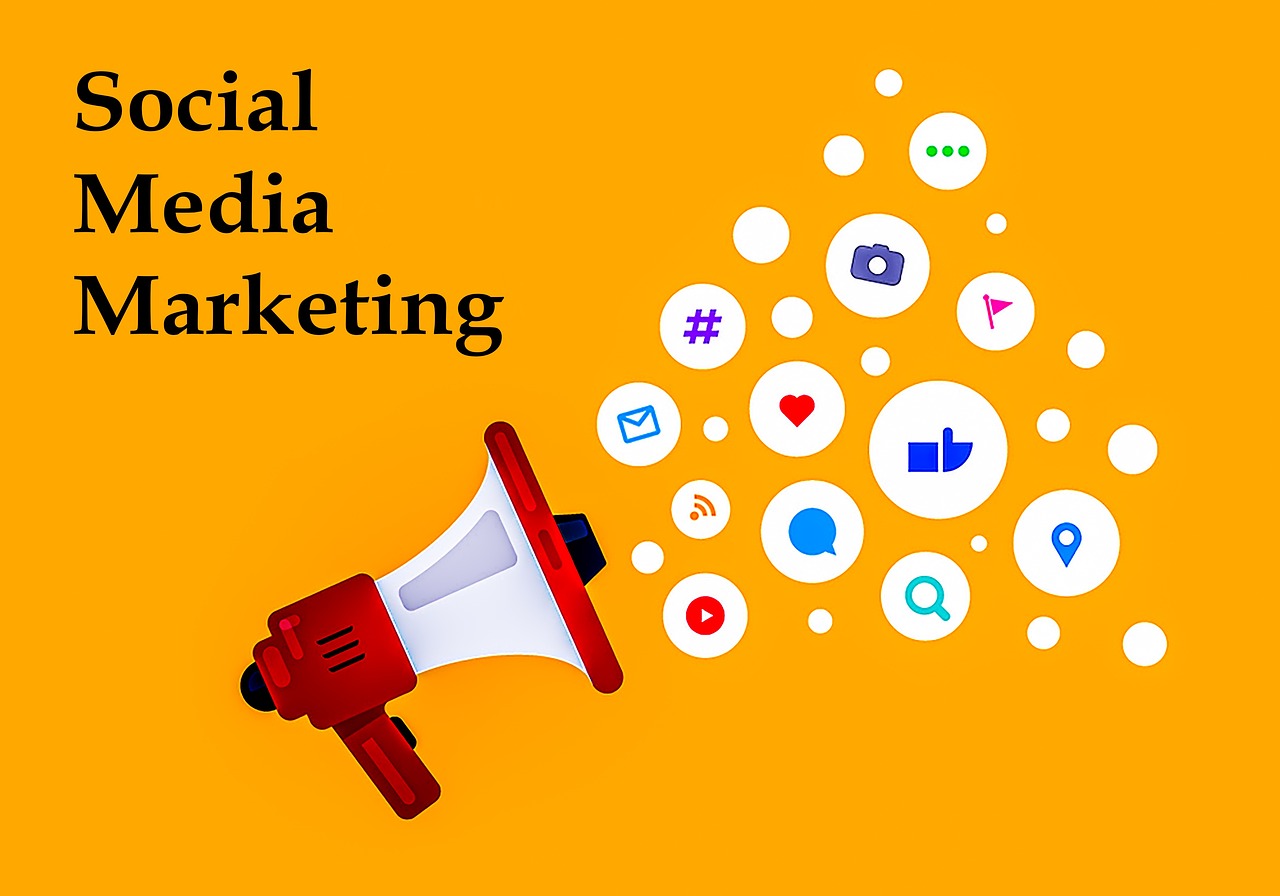Are you still ignoring social media for your business? If so, you might be missing out on the biggest opportunity to grow your brand, engage with customers, and increase sales.
Not having a strong social media presence can leave your business invisible, irrelevant, and far behind your competitors. If you’re not leveraging platforms like Instagram, Facebook, and Pinterest, you’re essentially handing over customers to your competitors who are.
Social media is no longer optional—it’s essential. Whether you’re a local restaurant in Birmingham, a retail store in Newcastle, or a consulting business in Edinburgh, social media is where your customers are, and if you’re not there, you’re missing the boat. But don’t worry, it’s not too late to turn things around.

The Importance of Social Media for Business Growth
Social media offers businesses an unparalleled opportunity to reach large and diverse audiences. It provides a platform to showcase your products, tell your brand’s story, and build relationships with your customers. The growth of your business hinges on how effectively you use these platforms.
- Brand Visibility: Social media increases your business’s exposure by connecting you with potential customers. A fitness studio in Birmingham, for example, can use Instagram to showcase workouts, success stories, and fitness tips, reaching a much larger audience than traditional marketing methods.
- Improved Customer Trust: Social media allows businesses to communicate with their customers directly, building trust through transparency and responsiveness. The more often your audience interacts with your brand online, the more familiar and comfortable they become with it.
- Targeted Advertising: Platforms like Facebook, Instagram, and Pinterest offer powerful advertising tools that allow businesses to target specific audiences based on their interests, location, demographics, and behaviors. This means that a restaurant in Manchester can specifically target people who are looking for dining options nearby or those who have shown interest in similar types of cuisine.
Social Media as a Tool for Customer Engagement
One of the greatest advantages of social media is its ability to foster direct communication between businesses and their customers. Unlike traditional advertising, social media allows for two-way conversations, making it a perfect platform for building relationships.
- Real-Time Interaction: Businesses can answer questions, resolve issues, and provide updates on the spot. For example, a plumbing business in Liverpool can use Facebook to answer customer queries about services or offer tips for common plumbing issues.
- Building a Community: Social media allows businesses to build a community of followers who engage with each other and the brand. Companies like Patagonia or Lush Cosmetics have used social media to create strong communities around their core values, creating loyal customer bases.
- User-Generated Content: Encouraging customers to share their experiences and tag your brand in photos or posts can generate free content and enhance brand trust. For example, a fashion boutique in Cardiff can ask customers to share their outfit photos on Instagram with a branded hashtag.
Driving Traffic and Sales through Social Media
While social media is great for engagement, it can also be a key driver of traffic and sales. With the right strategy, businesses can turn social media interactions into real, measurable outcomes.
- Linking to Product Pages: Platforms like Instagram, Facebook, and Pinterest allow businesses to include links to their websites, driving traffic directly to product pages. For example, a home décor store in Newcastle can post pictures of their latest collection with links to the online store, prompting followers to purchase items.
- Promotions and Discounts: Social media is an excellent place to share limited-time offers, seasonal promotions, or exclusive discounts. A restaurant in Oxford, for example, could promote a weekend discount via Twitter, attracting local customers and encouraging quick sales.
- Paid Social Advertising: Running paid ads on platforms like Facebook or LinkedIn can significantly increase your reach and sales. With highly targeted campaigns, you can ensure that your products or services are seen by the people most likely to purchase from you.

Using Social Media for Branding and Positioning
Social media provides an opportunity for businesses to define and refine their brand voice. Whether you’re a tech startup in London or a café in Cambridge, your social media presence can be a reflection of your brand’s values, personality, and expertise.
- Brand Voice Consistency: It’s important to maintain a consistent tone and style across all platforms. Whether your brand is fun and quirky or professional and sleek, ensuring your voice is consistent across all social media channels helps customers understand who you are.
- Thought Leadership: Social media can also help businesses position themselves as industry leaders. Posting insightful articles, sharing industry trends, and offering advice on platforms like LinkedIn helps businesses establish authority in their field.
- Storytelling: Through visuals, videos, and posts, businesses can tell their stories. Whether you’re sharing your brand’s history or customer success stories, storytelling is a powerful tool for connecting with audiences emotionally.
Best Practices for Effective Social Media Marketing
To maximize the benefits of social media, businesses must have a solid strategy in place. Here are some best practices for running an effective social media marketing campaign:
- Know Your Audience: Understanding your target audience is crucial to success. If you’re a beauty salon in Manchester, for example, your audience might primarily consist of women aged 18-35 who are interested in skincare, fashion, and beauty trends. Tailor your content to their interests and preferences.
- Choose the Right Platform: Not every social media platform is suitable for every business. For instance, LinkedIn is best for B2B marketing, while Instagram and TikTok are great for visually-driven businesses like fashion or food. Make sure you’re focusing your efforts on the platforms where your audience is most active.
- Post Regularly: Consistency is key in social media marketing. Create a content calendar to plan your posts and stay active on your chosen platforms. Tools like Buffer and Hootsuite can help schedule posts in advance and manage multiple accounts.
- Engage with Your Audience: Social media is a two-way conversation. Don’t just post content—engage with your followers by responding to comments, liking posts, and initiating discussions. This will help build a loyal community around your brand.
- Leverage User-Generated Content: Encourage your customers to share their experiences with your products or services. Reposting customer-generated content not only saves you time but also provides social proof to other potential customers.

Key Social Media Platforms for Businesses
Each social media platform offers unique opportunities for businesses to engage with their target audiences. Below is an overview of the most popular platforms and how businesses can use them effectively:
- Facebook: With its broad user base, Facebook is great for businesses that want to reach a diverse audience. You can post updates, share videos, and run targeted ads to increase visibility.
- Instagram: Known for its visual content, Instagram is perfect for businesses in industries like fashion, beauty, food, and travel. The use of Stories, Reels, and Shop features make it a powerful tool for eCommerce businesses.
- LinkedIn: LinkedIn is the go-to platform for B2B businesses. It’s ideal for building professional relationships, sharing industry insights, and attracting talent. Companies in consulting or finance, for example, can use LinkedIn to establish credibility and network with other businesses.
- TikTok: TikTok has exploded in popularity, especially among younger audiences. Businesses that focus on entertainment, fashion, and trends can benefit from creating viral content on this platform.
- Twitter: Twitter is perfect for businesses that want to engage in real-time conversations, stay updated with current events, or share short-form content. Customer service teams often use Twitter to respond to queries quickly.
- YouTube: Video content is highly engaging, and YouTube is the leading platform for video marketing. Businesses can use YouTube to post tutorials, behind-the-scenes footage, or product demos.
How to Measure Success on Social Media
Tracking the performance of your social media efforts is essential for understanding what works and what doesn’t. Here are a few key performance indicators (KPIs) businesses should focus on:
- Engagement Rate: Measures how actively users are interacting with your content (likes, shares, comments).
- Reach and Impressions: Reach refers to the number of unique people who have seen your content, while impressions refer to the total number of times your content has been seen.
- Click-Through Rate (CTR): Measures how often people click on the links you share, directing them to your website or product pages.
- Conversions: Ultimately, the goal of social media is to drive sales, so tracking conversions (sales, sign-ups, etc.) from social media is key to measuring success.
Let Gregg King Manage Your Social Media Account
Running a successful social media campaign requires time, expertise, and consistency. As a seasoned SEO consultant who handled hundreds of social media accounts, I understand the nuances of social media marketing and can help you build a strong, engaging online presence.
With Gregg King, I offer personalized social media management services tailored to your business goals. Whether you’re a restaurant in Edinburgh, a tech startup in Manchester, or a retail business in Liverpool, I can craft a customized social media strategy that aligns with your brand and attracts your target audience.
Here’s how I can help:
- Content Creation: I create high-quality content that resonates with your audience, including engaging posts, attention-grabbing visuals, and informative articles.
- Regular Posting: I ensure your accounts stay active with regular posts, keeping your audience engaged and your brand top-of-mind.
- Customer Engagement: I manage interactions with your followers, respond to comments and messages, and foster a loyal online community.
- Performance Tracking: Using analytics tools, I continuously monitor the performance of your social media campaigns and make data-driven adjustments to improve results.
- Paid Social Advertising: I run targeted ads on platforms like Facebook, Instagram, and LinkedIn, driving traffic to your website and generating leads.
Let me take the stress out of managing your social media, so you can focus on running your business. Contact me today to discuss how I can help you grow your online presence and boost your brand visibility!

Frequently Asked Questions (FAQs)
- Which social media platform should I focus on for my business?
- It depends on your target audience and business type. Instagram is ideal for visually-driven businesses, while LinkedIn is best for B2B marketing.
- How often should I post on social media?
- Aim to post consistently, at least 3-5 times per week on platforms like Instagram and Facebook, and adjust based on your audience engagement.
- Do I need to pay for ads on social media?
- While organic content is important, paid ads can help increase visibility, especially on platforms like Facebook and Instagram.
- How can I measure success on social media?
- Key metrics include engagement rate, reach, conversions, and click-through rates. Tools like Google Analytics and platform-specific insights can help track these KPIs.
- How do I handle negative comments on social media?
- Respond professionally and quickly, acknowledging the issue and offering a solution. Transparency and good customer service can turn negative experiences into positive ones.
By integrating social media into your marketing strategy and optimizing it for your business, you can unlock new opportunities for growth, engagement, and brand success. Let Gregg King guide you through the process and help you build a robust, effective social media presence.




